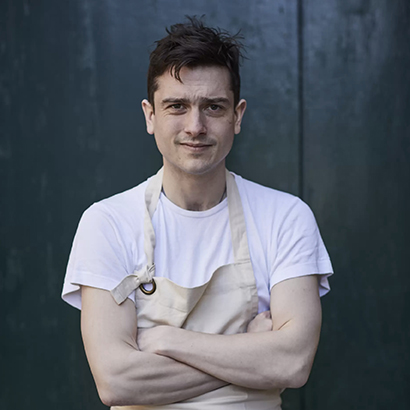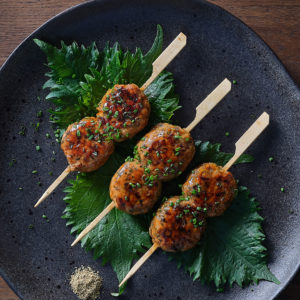 I was raised eating simple, English food, delivered in a plain, Mediterranean style. My mother is a wonderful cook, her mother a prolific gardener, and between them, the bushels of chard, spinach, beans that used to fill our fridge every week, and my mother’s generous hand with the olive oil, most meals were simple dishes of pasta, rice, or lentils, piles with leaves slowly simmered and slicked. It was, and remains, nourishing and soulful, and altogether desirable in almost any mood.
I was raised eating simple, English food, delivered in a plain, Mediterranean style. My mother is a wonderful cook, her mother a prolific gardener, and between them, the bushels of chard, spinach, beans that used to fill our fridge every week, and my mother’s generous hand with the olive oil, most meals were simple dishes of pasta, rice, or lentils, piles with leaves slowly simmered and slicked. It was, and remains, nourishing and soulful, and altogether desirable in almost any mood.
But as I grew, the need for comfort started to be outweighed by the need for excitement, edge, and the addition of acidity became fully integrated, the dash of vinegar and lemon juice at the end of cooking, the judicious application of white wine at the beginning. At the same time, my horizons were extending, beyond the confines of southern and western Europe, and out into the world, with a rapacious interest in the great culinary traditions of India, China, and perhaps most importantly of all, Japan.
What excited me most about Japanese gastronomy then, and still now, is the utterly improbable tension between complexity, purity, concentration,and depth. A delicate-looking broth, pale and clear, can absolutely carry you away on deep resonant waves of flavour, an almost overwhelming sense of potency washing over you with ethereal lightness. sparkling with taught electric energy. I remain absolutely fascinated by this, and though I would never dishonour the Japanese cuisine by claiming it an influence, I am ceaselessly inspired by so much about it, especially that which finds no equivalent within the European tradition.
Mizkan Shiragiku is precisely this. A spirit vinegar brewed from sake lees, which in turn is dependent on Koji, tastes like no European vinegar I’ve ever encountered. Light, long, sweet, sharp, and remarkably savoury, its extraordinary capacity to combine multiple complex flavour components in one taste makes for an extraordinary and stimulating new discovery in the kitchen. Used in split vinaigrettes, to finish broths, to bolster dressings, to cut through sauces, it suggests so many exciting uses for itself, many of which I’ve spent the last few weeks engaged in experimenting with. Koji, the mould on which the sake making process depends, has no history in Europe, and it’s only recently that knowledge of the unique flavour potential of the koji on various grains, proteins and vegetables has started to become more widespread in Europe. As such, there’s nothing within our British vinegar making traditions that could taste anything like this, not even considering the fact that so many of our precious foodways have been lost to rampant industrialization and mass production.
I recently found myself craving some of that homely cooking of my mothers, and, armed with some beautiful rainbow chard, set about gently cooking it in the liquor of gently braised white beans, along with some good olive oil and shaved garlic. While it was every bit as delicious as I remember, it became transcendent with the addition of the Shiragiku at the end, magically adding both delicate acidity and savoury depth in the same moment. It was a revelation, and an illustration of just how remarkable this style of vinegar is, and how grateful we can feel to the country of Japan, both for developing it, for safeguarding it and finally for sharing it with us.
Recipes developed by Jackson Boxer, containing Shiragiku:
In one of the strangest leadups to the festive season ever, we’re hoping we can provide some foodie entertainment and of course inspiration with the very first instalment of our new web cooking series Chefs in Conversation.
What’s it all about? two innovators, two locations, one goal: inspire creativity!’ We’ve asked hope that in watching the video will inspire some creativity in you too.
Filmed just before lockdown 2 and hosted by our development chef Ron Laity, this first episode has as its guest a serious innovator in the world of cocktails, someone who seamlessly marries the world of food and drink through a distinctly avant-garde approach to mixology – the multi-award-winning bartender, Rich Woods.
Rich AKA ‘The Cocktail Guy’ opened both Duck & Waffle and Sushisamba in 2012, to great acclaim. Impressing critics, connoisseurs and media alike, in 2014 he earned first place in the UK and Ireland Bombay Sapphire’s ‘World’s Most Imaginative Bartender Competition’ followed by second place in the world finals
Most recently he was listed among the London Evening Standard’s Progress 1000, as one of the most influential people in the capital and led team London to win the 24hr Bar Build competition.
We couldn’t be prouder to welcome Rich as our very first guest on Chefs in Conversation as he creates three festive cocktails using Honteri as a hero ingredient. Inspired by what he sees, chef Ron then creates three incredible festive canapes, again using Honteri, that match perfectly with the unique flavours of Rich’s drinks.
The perils of Covid-19 and social distancing rules may have put paid to a two-person cook-off, but we’ve found an innovative, fun and highly entertaining way to bring Ron and Rich together from separate locations. Rich joins us from his latest venture, East London’s Scout Bar – meaning we get an opportunity to take a tantalizing peek behind his bar.
Modestly calls himself a ‘bartender’ – we think of Rich is more as an alchemist, and absolutely loved the way he took Honteri, its depth of sweetness, flavour and texture, and uses it to elevate his drinks.
We hope you enjoy watching episode one and if you’re inspired by what you see, all six recipes are available here, you can also sign up for a completely free, full size sample of Honteri, giving you the keys to create your very own dishes and drinks. If you are currently at home, don’t worry – we can send samples direct to you there. If you do end up making your own creations, be sure to share it on our Instagram page @MizkanChefUK. Happy viewing!
 Having previously worked as a lobster fisherman, fishmonger, cheese maker and dairy hand, Ron Laity has spent his life in food. It was at the start of a stint as a line chef, some 25 years ago, that his love of Japanese culture and cuisine was born.
Having previously worked as a lobster fisherman, fishmonger, cheese maker and dairy hand, Ron Laity has spent his life in food. It was at the start of a stint as a line chef, some 25 years ago, that his love of Japanese culture and cuisine was born.
After catering college, he honed his Japanese cooking skills, working at the Tokyo Diner in London’s Chinatown – the same year Nobu opened in London. From there he moved to Yo Sushi before decamping on a six-year working tour of Japan, where he immersed himself in the culture and explored creating dishes with authentic Japanese ingredients. Upon his return to the UK, Ron worked at establishments such as Yakitoria, Samurai Sushi, Senkai, Feng Sushi, Bincho Yakitori and United Ramen, before joining Mizkan.
“I’m delighted to join Mizkan, having admired their products, especially their sushi rice seasoning, for some time. It’s fair to say that although my chef training was classical in nature, I am a Japanese convert, and absolutely love developing dishes that sing with the flavours of the cuisine – from ramen, to sushi to poke. Mizkan has a host of products that can be used as Japanese ingredients from their Ajipon Citrus Seasoning and Shiragiku – ideal for making the perfect sushi rice – to their Honteri Mirin Style Seasoning and Mirin Rice Wine which delivers true Japanese flavour across authentic dishes such as Udon, Yakisoba and Karaage. Better yet, their wide variety of products are versatile enough to be used across cuisines, including fusion European, Latin American, and Middle Eastern. I’m looking forward to demonstrating their versatility and potential and to helping inspire UK chefs from all sectors.”
Explore our range of Japanese ingredients and keep up to date with the latest news and recipes; from Japanese classics such as ramen and udon, to European dishes with a Japanese twist.
 Welcome to our relaunched foodservice website, Mizkan Chef, where we’ll be bringing you inspiration on Japanese ingredients and how to use these in Japanese or European cooking.
Welcome to our relaunched foodservice website, Mizkan Chef, where we’ll be bringing you inspiration on Japanese ingredients and how to use these in Japanese or European cooking.
Stay tuned for the latest updates on culinary news, cooking tips, recipes and ingredients.
Be sure to try out our poke bowl and ramen recipes, as well as our European fusion dishes, from meat pies and risottos, to caramel sauce and tarts.
We will also be sharing our top tips on how to master some of the basics, such as how to make the perfect sushi rice.
We would love for you to join our Mizkan Chef panel where you’ll be offered exclusives benefits and be kept up to date on events, product information and brand news. It’s also an opportunity for you to give us insight and input on our products and services through surveys that we’ll be sharing regularly.
We welcome all feedback and we’ll ensure to answer any questions or requests on our website and social media channels.